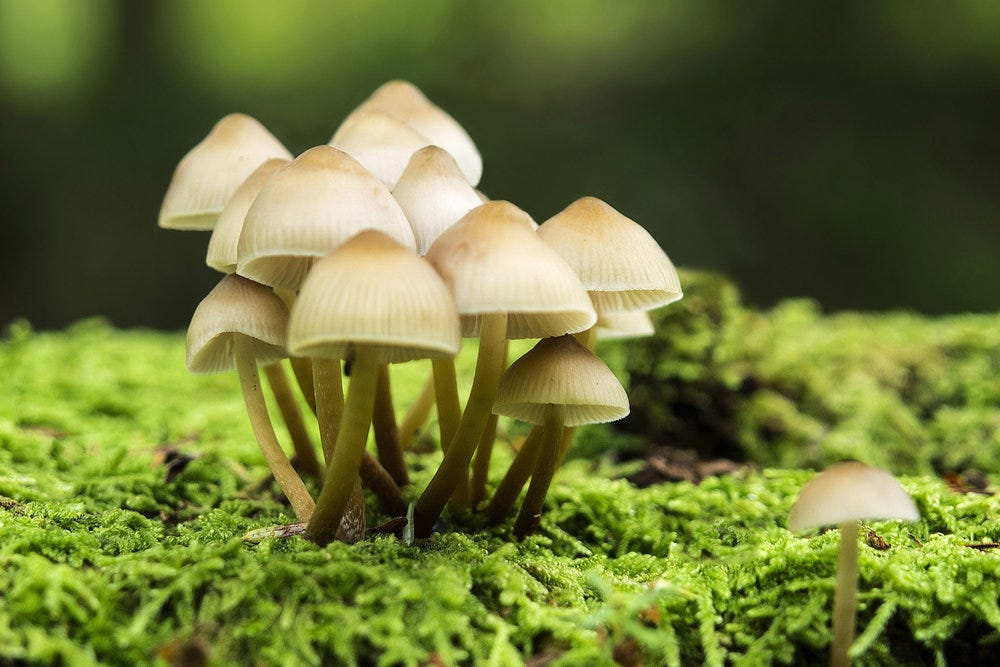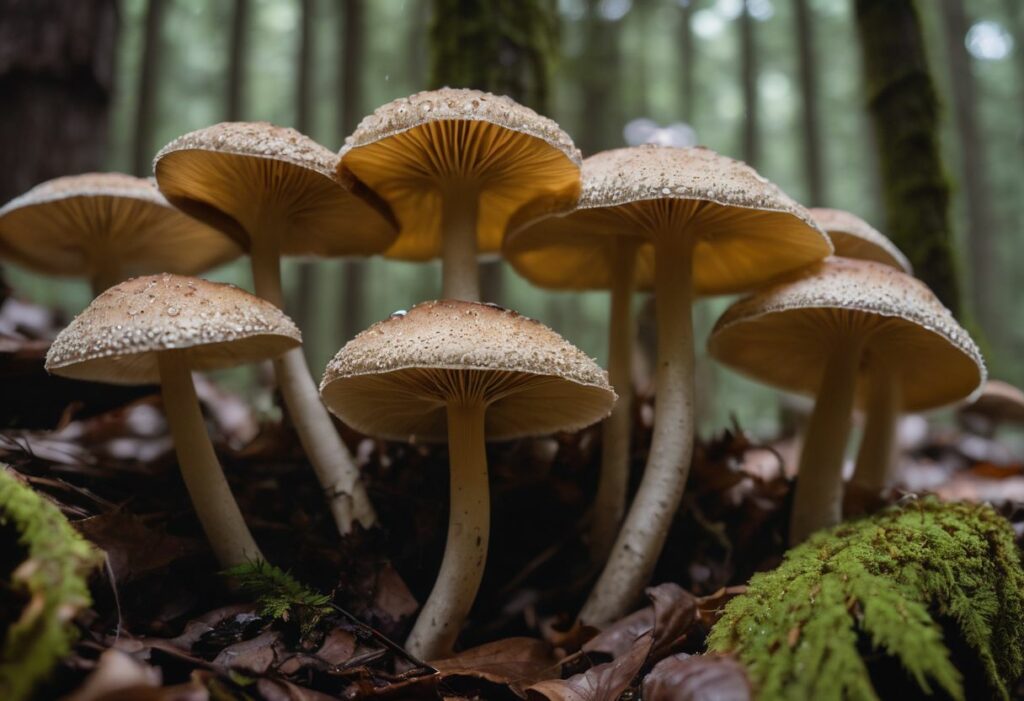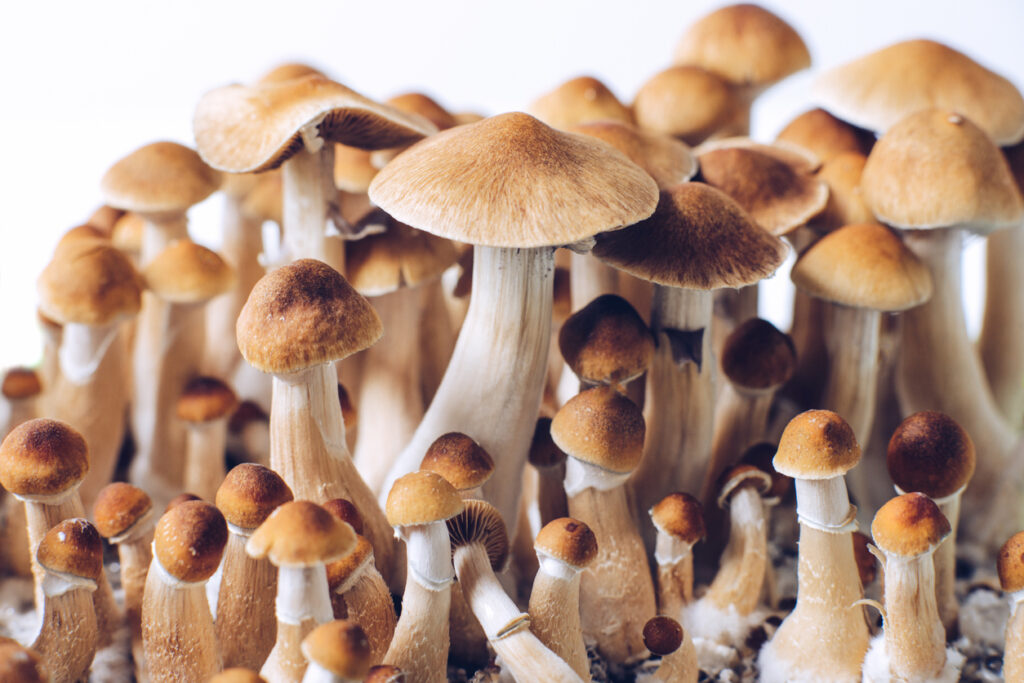Magic mushrooms, also known as psilocybin mushrooms, have a long history of use in various cultures for spiritual, shamanic, and recreational purposes. In recent years, there has been a growing interest in the potential therapeutic benefits of psilocybin, leading to a reassessment of its legal status in many countries, including Canada. This article aims to provide a comprehensive overview of the legal status of magic mushrooms in Canada, exploring recent developments, regulations, and the broader context of psychedelic substances.

Historical Context
Canada has a complex history with psychedelic substances, including magic mushrooms. Until 1974, psilocybin was legally available in the country, and its use was not heavily regulated. However, concerns about abuse and recreational use led to its inclusion in Schedule III of the Controlled Drugs and Substances Act (CDSA) in 1974. This placed psilocybin in the same category as substances like LSD and heroin, indicating a high potential for abuse and strict legal consequences for possession, production, and trafficking.
Recent Changes and Legal Developments
In recent years, there has been a notable shift in attitudes towards psychedelics, particularly psilocybin, in Canada. This shift is driven by a growing body of research suggesting potential therapeutic benefits, particularly in the treatment of mental health conditions such as depression, anxiety, and PTSD. As a result, there have been several significant legal developments regarding the use of magic mushrooms in the country.
One of the key milestones occurred in August 2020 when the Minister of Health, Patty Hajdu, granted an exemption to Section 56(1) of the CDSA, allowing certain patients to use psilocybin as part of their end-of-life care. This decision was prompted by a petition from several healthcare professionals and patients advocating for access to psilocybin-assisted therapy for individuals facing terminal illnesses.
Legalization vs. Decriminalization
While there have been positive developments regarding the therapeutic use of psilocybin in Canada, it’s crucial to distinguish between legalization and decriminalization. As of now, magic mushrooms are not fully legalized for recreational or therapeutic use. The exemptions granted by the Minister of Health are specific and limited, applying primarily to end-of-life care and approved clinical trials.
Decriminalization, on the other hand, involves removing criminal penalties for the possession and use of a substance while not necessarily legalizing or regulating its production and sale. Some advocates argue that decriminalization of magic mushrooms could lead to a more nuanced and health-focused approach to their use, reducing the stigma associated with psychedelics and encouraging responsible consumption.

Public Opinion and Community Initiatives
Public opinion regarding the legal status of magic mushrooms in Canada is diverse and evolving. While there is growing support for the therapeutic use of psilocybin, there are also concerns about potential misuse and the need for proper regulation. Advocacy groups and community initiatives play a crucial role in shaping public discourse and influencing policymakers.
Organizations like MAPS Canada (Multidisciplinary Association for Psychedelic Studies) and TheraPsil have been at the forefront of advocating for research, education, and legal reform related to psychedelic substances. Their efforts include raising awareness about the therapeutic potential of psilocybin, supporting clinical trials, and engaging with policymakers to influence changes in legislation.
Challenges and Future Outlook
Despite the positive developments, challenges remain in the path towards a more permissive legal framework for magic mushrooms in Canada. The stigma associated with psychedelics, concerns about potential misuse, and the need for rigorous scientific evidence all contribute to the complexity of the issue.
The future outlook, however, appears promising. As more research is conducted and clinical trials demonstrate the therapeutic benefits of psilocybin, there may be increased pressure on policymakers to reconsider the legal status of magic mushrooms. Ongoing community initiatives, public education efforts, and collaboration between researchers, healthcare professionals, and advocacy groups will play a vital role in shaping the narrative and influencing policy changes.
The Ripple Effect of Legal Exemptions
The exemptions granted by the Minister of Health have sparked a ripple effect, leading to increased interest and momentum in the psychedelic research community. Researchers and clinicians have been eager to explore the therapeutic potential of magic mushrooms further. The exemptions signify a departure from traditional views on psychedelics, acknowledging their potential benefits beyond recreational use.
In addition to end-of-life care, there is a growing call for expanded access to psilocybin-assisted therapy for a broader range of mental health conditions. Advocates argue that a more comprehensive and inclusive approach to therapeutic applications could provide alternative treatment options for individuals who have not responded to conventional therapies.
Navigating Legal and Ethical Challenges
While the exemptions represent a step forward, legal and ethical challenges persist. The current legal framework remains restrictive, limiting access to magic mushrooms for the majority of the population. Questions about how to regulate production, distribution, and use in a way that ensures safety and minimizes potential risks are yet to be fully addressed.
Ethical considerations surrounding the use of psychedelics also come into play. Issues such as informed consent, patient safety, and the need for trained professionals to administer psychedelic-assisted therapy require careful consideration. Striking a balance between expanding access and implementing safeguards is crucial to the responsible integration of magic mushrooms into therapeutic practices.
Global Context and Comparisons
To gain a more comprehensive understanding of Canada’s approach to magic mushrooms, it’s beneficial to consider the global context. Several countries have taken steps toward revising their stance on psychedelics, and Canada’s evolving perspective aligns with broader shifts in attitudes.
Countries like Portugal and the Netherlands have decriminalized the possession and use of small quantities of drugs, including magic mushrooms, focusing on harm reduction and treating substance abuse as a public health issue rather than a criminal one. This approach aims to reduce the negative consequences associated with drug use while promoting education and access to treatment.
The Role of Indigenous Perspectives
Canada’s legal considerations regarding magic mushrooms also intersect with the rights and perspectives of Indigenous communities. Some Indigenous cultures have a historical relationship with psychedelic substances, including magic mushrooms, within their spiritual and healing practices. Balancing the need for legal regulation with respect for Indigenous rights and cultural heritage poses a unique challenge for policymakers.
Efforts to engage with Indigenous communities, listen to their perspectives, and incorporate their voices into the conversation are essential. Collaborative approaches that acknowledge and respect the cultural significance of magic mushrooms can contribute to a more inclusive and equitable legal framework.
Looking Ahead: Potential Policy Shifts
As Canada continues to navigate the legal status of magic mushrooms, there is a sense of cautious optimism within the psychedelic research and advocacy communities. The growing body of evidence supporting the therapeutic benefits of psilocybin, coupled with shifting public perceptions, may pave the way for further policy changes.
Several municipalities in Canada have already taken steps to explore the decriminalization of magic mushrooms at the local level. Cities like Vancouver and Toronto have witnessed discussions on the potential benefits of a more lenient approach to possession and use, focusing on harm reduction and public health.
Conclusion
The legal status of magic mushrooms in Canada is undergoing a transformative period marked by exemptions for therapeutic use, clinical trials, and a shifting societal perspective. While the full legalization of magic mushrooms for recreational or therapeutic use has not been realized, recent developments indicate a growing recognition of their potential benefits and a willingness to explore alternative approaches to regulation.
As research continues and public awareness expands, it is essential for policymakers to consider evidence-based approaches that prioritize public health and safety. The evolving legal landscape of magic mushrooms in Canada reflects a broader global reevaluation of psychedelics, highlighting the need for a balanced and informed approach to regulation that considers both the risks and benefits associated with these fascinating fungi.

